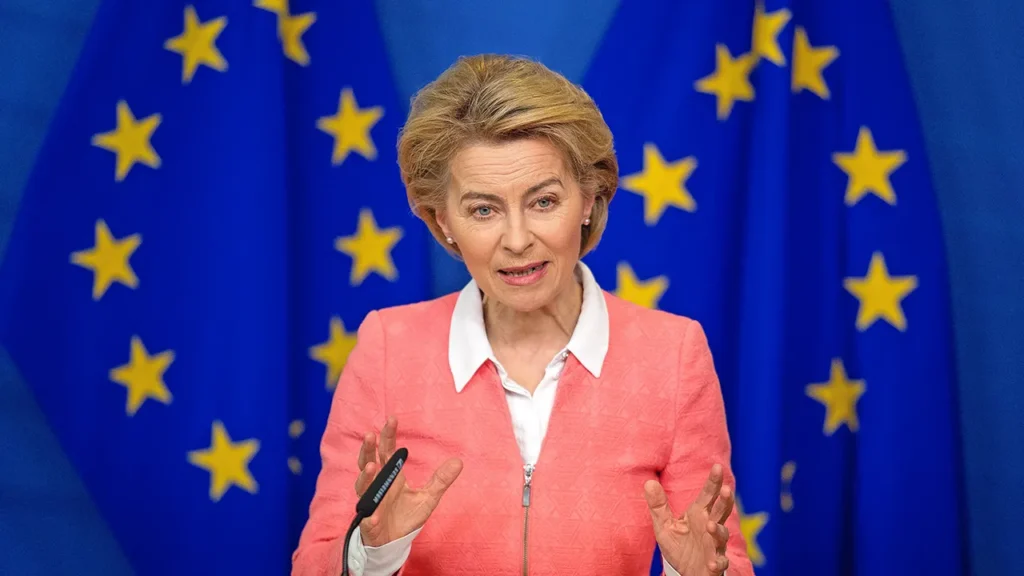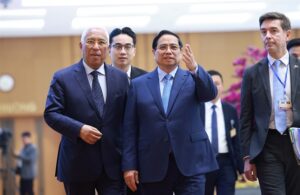Von der Leyen Defends EU-US Tariff Deal as Necessary to Avert Trade War

Brussels, The Gulf Observer: European Commission President Ursula von der Leyen has defended the recent EU-US agreement on tariffs, describing it as a “conscious decision” that prevented a damaging trade war between the world’s two largest democratic economies.
In an opinion article published Sunday in several European newspapers, including Il Sole 24 Ore in Italy and Frankfurter Allgemeine Zeitung in Germany, von der Leyen indirectly responded to criticism from former European Central Bank chief and Italian Prime Minister Mario Draghi, who had accused the EU of showing weakness on trade policy.
“Imagine for a moment if the two largest economies in the democratic world had failed to reach an agreement and had started a trade war. This would have been celebrated only in Moscow and Beijing,” von der Leyen wrote.
The deal includes a 15 percent cap on US tariffs covering products such as cars, pharmaceuticals, semiconductors, and timber. While acknowledging the compromise as “good, if not perfect,” von der Leyen stressed that tariffs “are taxes that burden consumers and businesses, increase costs, reduce choice, and undermine competitiveness.”
She further noted that the agreement with Washington secures additional trade guarantees for Europe, while underlining Brussels’ broader strategy to diversify its markets. “We have recently concluded trade agreements with Mexico and Mercosur, deepened relations with Switzerland and the UK, completed talks with Indonesia, and aim to reach an agreement with India by the end of the year,” she said.
In her closing remarks, von der Leyen urged Europe to remain “strong and independent,” calling on member states to complete the single market and bolster competitiveness and sustainability.
Her comments came in response to Draghi’s warning at Italy’s annual Rimini Meeting on Friday, where he argued that the EU could no longer rely on its size alone to exert geopolitical influence in trade. “This year will be remembered as the year in which this illusion evaporated,” Draghi cautioned.


